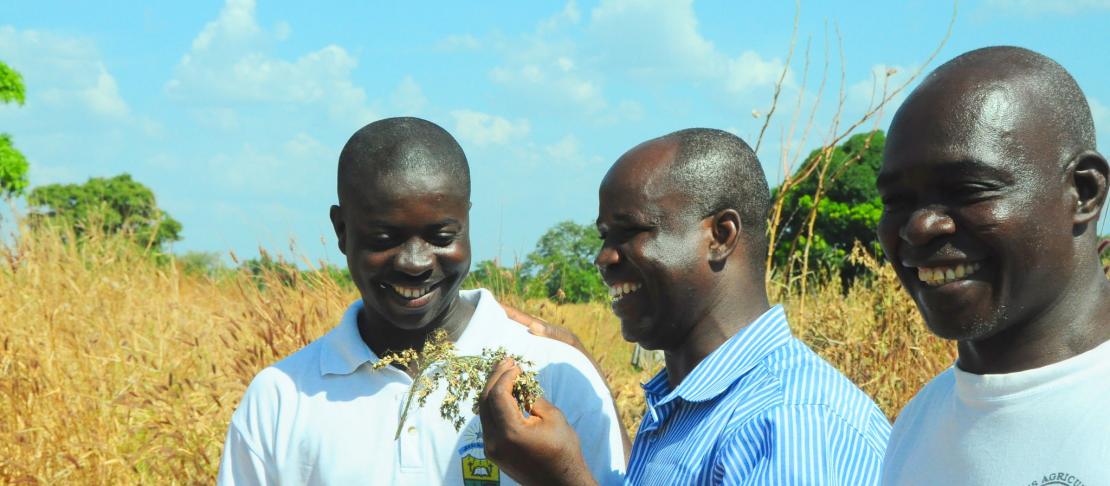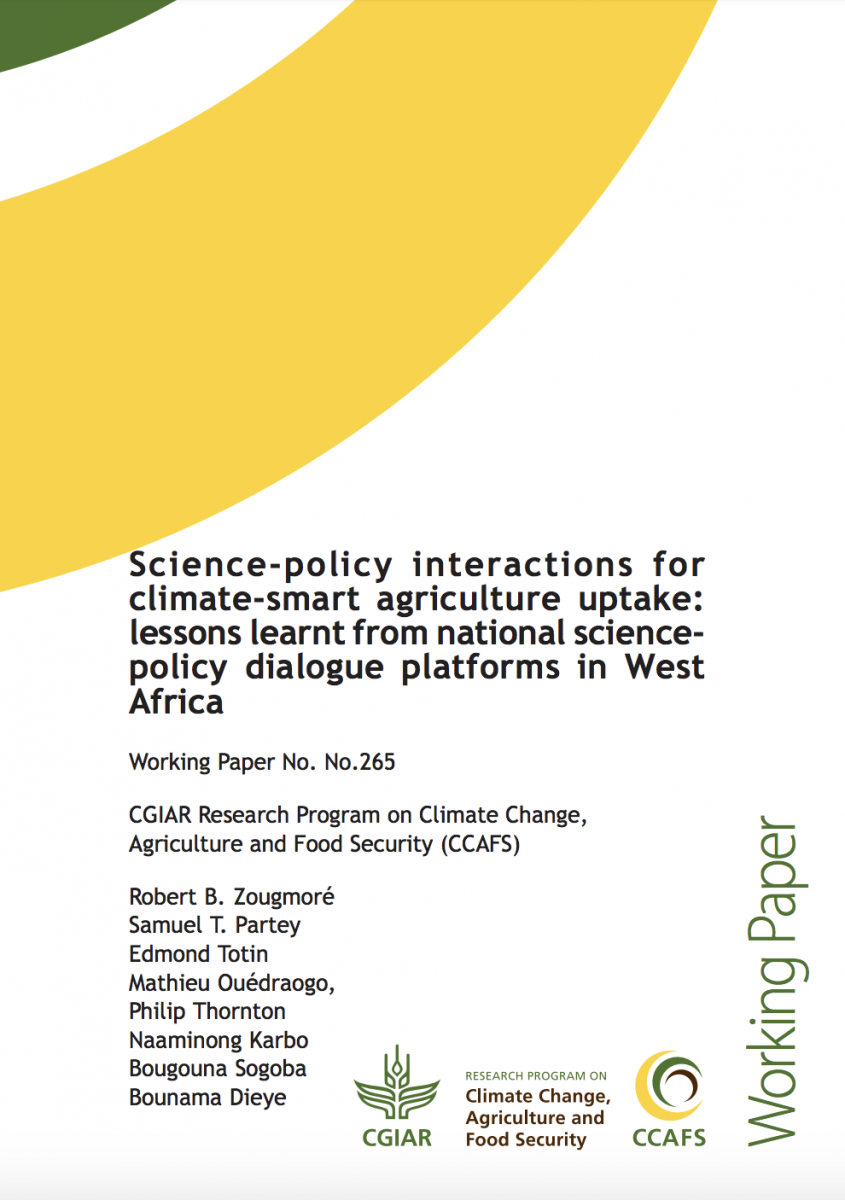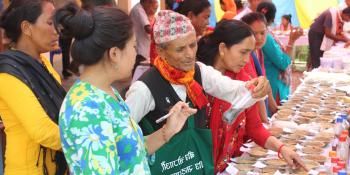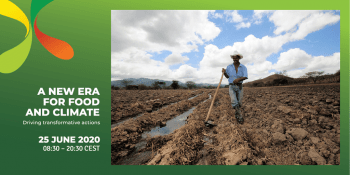Promising agricultural development initiatives to rapidly impact policy change in West Africa

Making great progress towards science-informed agricultural plans and policies in West Africa.
The agricultural potential of sub-Saharan Africa is enormous. Across the continent, agriculture constitutes at least 30% of the gross domestic product. At the same time, hunger and malnutrition persist on the continent partly because of the negative effects of climate change on the agricultural sector. According to projections, these effects might worsen if efforts to sustainably enhance productivity in the sector are not made.
Most promising initiatives regarding the future state of agriculture aim to sustainably ensure a more climate change resilient agriculture. In 2019, the CCAFS West Africa program started a project that contributes to emerging policy initiatives in the region like the national agricultural plans and the Nationally Determined Contribution (NDCs), as part of the countries’ climate action towards achieving the Paris Agreement.
Major breakthroughs for more impactful future actions
The CGIAR Research Program on Climate Change, Agriculture and Food Security (CCAFS) aims to use scientific evidence to create awareness on climate change impacts on agriculture as well as advocate for the mainstreaming of climate-smart agriculture into development plans.
Five years ago, CCAFS, in collaboration with national stakeholders, started working closely on a science-policy dialogue project aiming to make climate change response a key issue in national and district-level food security policies and plans. The project also presents possible solutions and ways forward for countries such as Ghana and Niger, through the use of climate-smart agriculture practices and technologies.
As part of that project, several knowledge sharing hubs called “science-policy dialogue platforms” were launched at both national and district levels. These platforms are avenues for stakeholders from various backgrounds to discuss issues related to climate change and agriculture at both national and district levels. Participants of these platforms include public authorities, scientists, farmers’ organizations, civil society and the media. The platforms constitute an innovative approach to better engage decision-makers and sustainably mainstream climate change into national agricultural or rural development plans.
Ghana and Niger platforms leading the way
Through the years, and especially in 2019, the platforms in Ghana and Niger have been especially active and have been leading science-policy interfaces on climate change, climate-smart agriculture and related issues.
In Ghana, for instance, the national platform has undertaken many successful and promising activities, such as:
- The development of the National Climate-Smart Agriculture and Food Security Action Plan of Ghana (2016-2020) to operationalize the National Climate Change Policy document;
- Sensitization and profiling of CSA technologies and practices in the Guinea Savannah and Forest agro-ecological zones in Ghana, and;
- The creation of 10 platforms at district level.
Through strategic and technical support from CCAFS, the Niger platform has also been able to promote climate-smart agriculture in the country. Since 2012, the CCAFS West Africa program has taken the lead in organizing meetings with the aim to develop multi-levels actors’ synergies of actions, resources mobilization and experience sharing. In 2019, for example, a meeting of the Niger platform resulted in a budgeted plan of action and a decree signed by the Nigerien Prime Minister supported the Niger platform.
1ere Journée de Veille et d’incitation à la prise en compte de l’AIC au Niger dans toutes les actions de développement dans le cadre du P rojet d’Appui à la Résilience Climatique pour un Développement Agricole Durable. Journée organisée en collaboration avec le PASEC.@dueniger pic.twitter.com/rYbh7cpIQA
— CCAFS West Africa (@cgiarclimate_WA) May 31, 2019
Exciting developments ahead
The CCAFS science-policy project is planning important activities in the coming months, including:
- Reflecting on national priorities related to climate change, agriculture and food security in Burkina Faso, Ghana, Mali, Niger and Senegal.
- Defining a participatory and interactive process to collaborate with national agriculture and climate change actors.
- Assisting countries like Ghana, Niger and Mali in the development of eligible bankable projects to climate finance initiatives such as the Green Climate Fund.
- Linking the national platforms with the regional similar entities such as the West African Alliance for Climate-Smart Agriculture led by the Economic Community of West African States (ECOWAS).
Through such initiatives, CCAFS, along with other agricultural and political actors, is participating substantially in efforts towards science-informed agricultural plans and policies. All of these efforts are aimed at the sustainable development of the agricultural sector in the context of climate change in West Africa.
Read more:
- Project page: Enabling institutions and policies for sustainable climate change governance in agriculture
- Report: National stakeholders’ workshop of the Ghana national science-policy dialogue platform on climate change, agriculture and food security. Review of activities and operations
- Working paper: Science-policy interactions for climate-smart agriculture uptake: lessons learnt from national science-policy dialogue platforms in West Africa
- Journal article: Science-policy interfaces for sustainable climate-smart agriculture uptake: lessons learnt from national science-policy dialogue platforms in West Africa
Dansira Dembele is the Communications Officer for CCAFS West Africa. Edited by Lili Szilagyi, the Communications Specialist for CCAFS Priorities and Policies for CSA.




